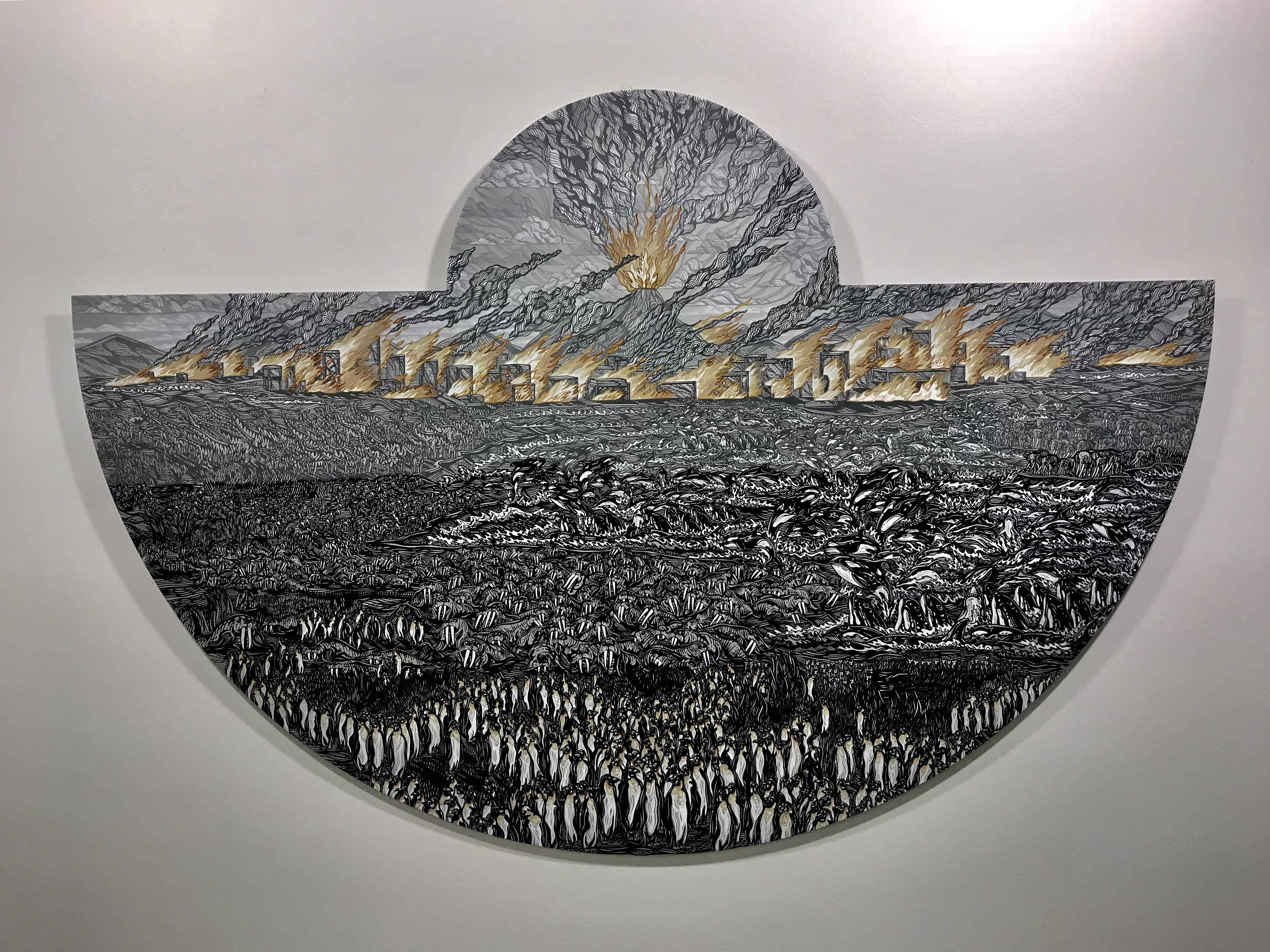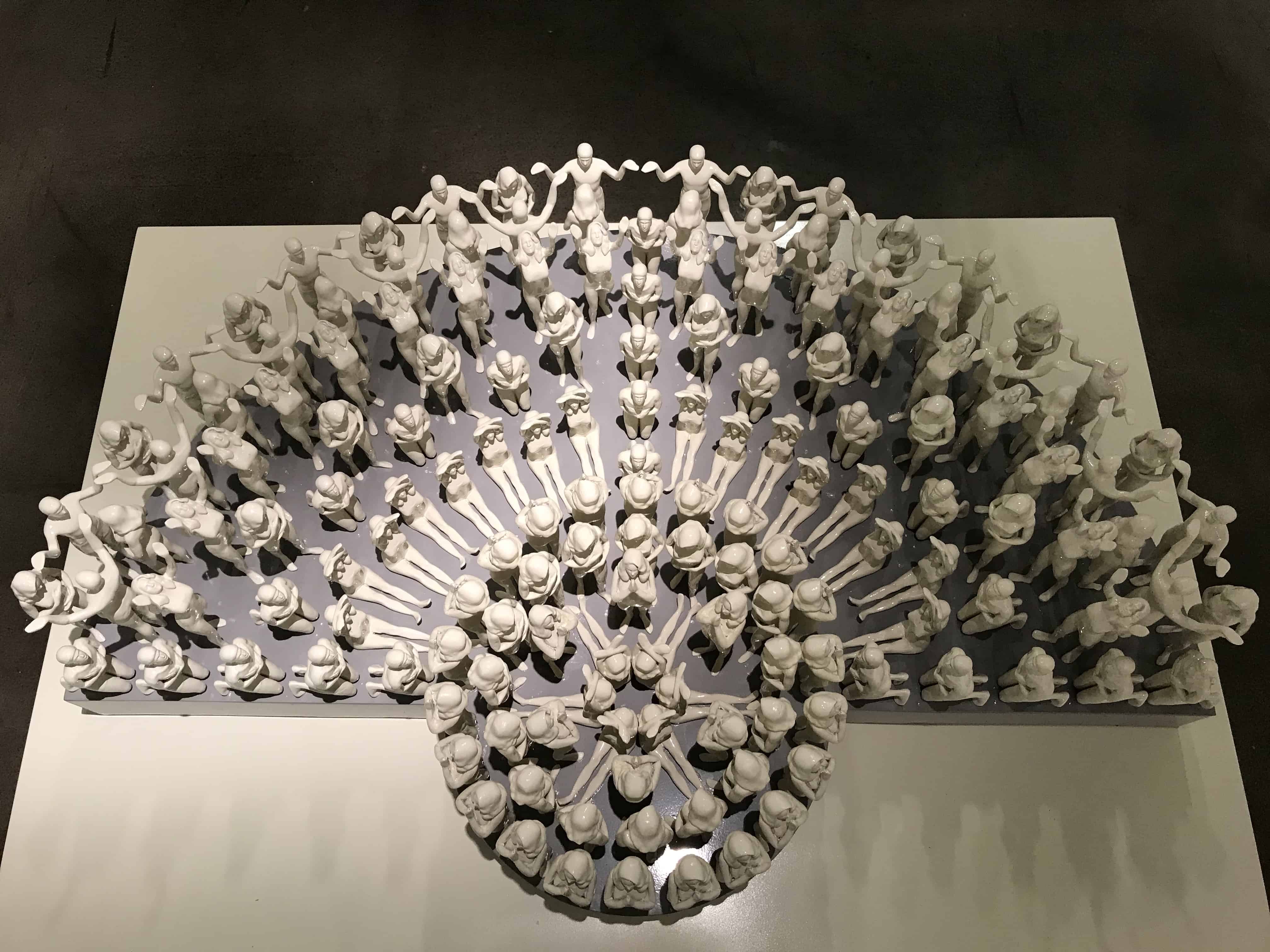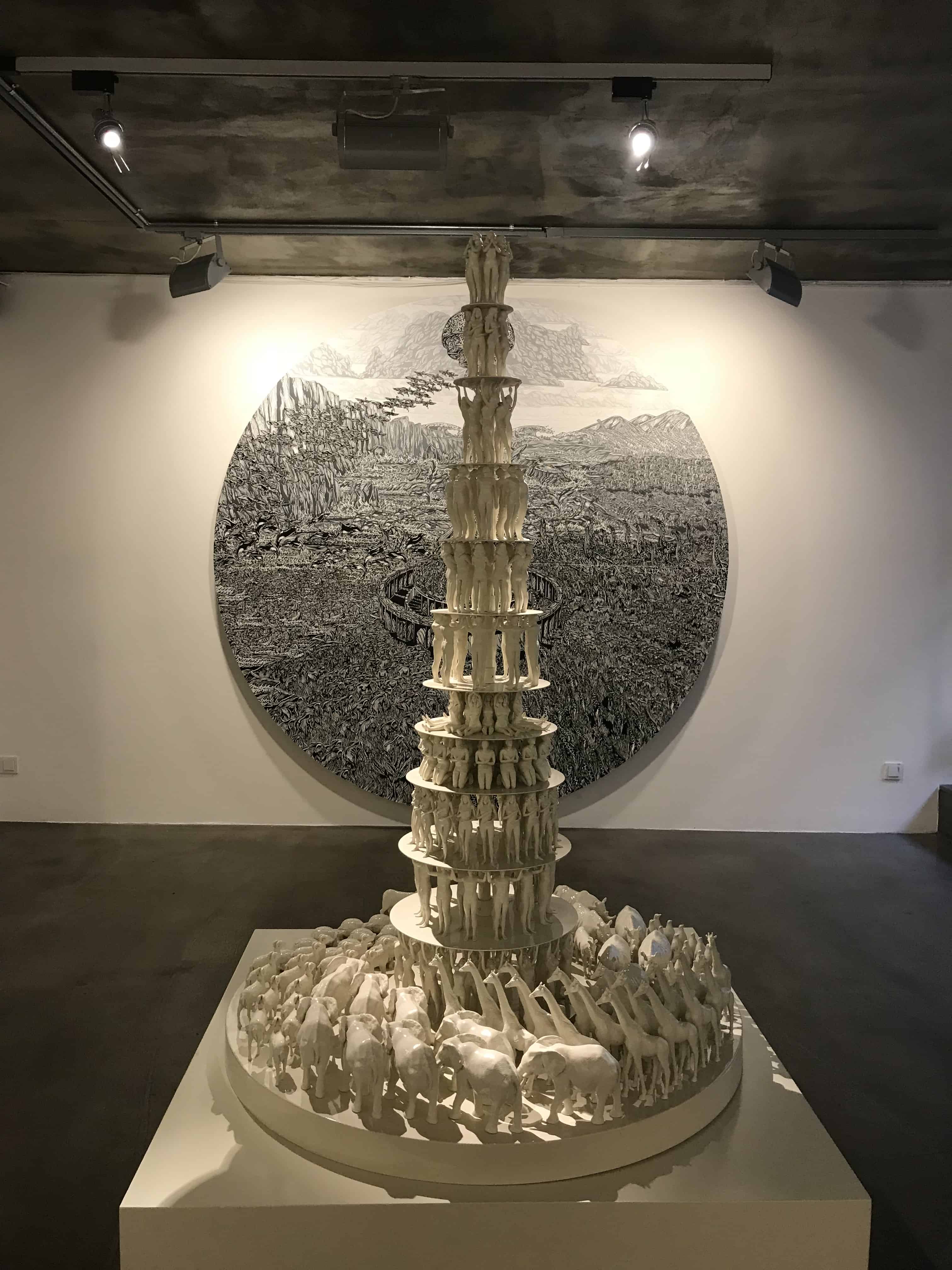Carbon Dioxide 407.61 parts per million
Global Temperature 1.8 °F since 1880
Arctic Ice Minimum ¯ 13.2 percent per decade
Land Ice ¯ 286.0 gigatonnes per year
Sea Level 3.2 millimeters per year[1]
I am stuck with waste these days. Why don’t we recycle? Why? People at my office prefer consuming water from 0.5 liter plastic bottles rather than glass bottles or the water dispenser (again plastic, but hey…). Worse, at some offices they prefer 0.25 liter bottles which is driving me even crazier. Why? Because it’s more convenient compared to filling your glass every couple of hours. Tiny bottles, drink it and throw it away….
At my gym, every hour around 15-20 people exercise and leave. They all drink water from plastic bottles. No recycling. If you think about it, recycling is so pretty easy. You put a trash can for plastic bottles only and ask the municipality to come and take it every week. I didn’t even begin to talk about all the other waste that could be recycled. Just start with the plastic bottles…
I know that if you told people in person, majority of them would agree that we should recycle. However, as masses, we don’t see the big picture. We never see it until something very very obvious happens to us. Funny thing is, we are all experiencing climate change. Above numbers are the current effects of climate change according to NASA. Ever complain about rising heat? Afraid of hurricanes? Worried about sea level? That’s climate change for you, right there.

As more sensible people compared to the rest of us, it seems that lately, the artists have taken upon questioning of the damage caused by the humans to the world, through an unconscious pact. While our acts according to our new, fast, digitalized, ever more consuming life style are questioned (Ali Alışır – Hybrid Souls, Hüseyin Arıcı – Don’t be deceived!, Hasan Pehlevan – Formicarium), the artists also create post-apocalyptic scenarios which usually do not end well for the human kind. (Metin Çelik – Post-Apocalyptic, Tayfun Gülnar – Chromofobia) The exhibitions I mentioned took place only within the past year. We have begun to realize that we consume carelessly, damage the environment, threaten lives, even worse existence of other beings that we share this world with and do not give anything back to the ecological system. Humans want, humans have.
In his recent exhibition, Emin Mete Erdoğan joins the new crowd of artists questioning the darkening fate of the world due to human actions. Erdoğan starts by asking, “What kind of a scene would we have to deal with if the Great Flood happened today?” The artist believes that we are just in the middle of a pre-apocalyptic scenario similar to the Great Flood due to the global warming and the rising ocean level. Emin Mete Erdoğan depicts today’s world while interpreting the Great Flood as a past narrative.
Humanity’s God Complex
The world’s last surviving male northern white rhino, Sudan, has died in the past week. Rhinoceroses – of which there are five species – are the second-largest land mammal after elephants. The white rhinoceros consists of two sub-species: the southern white rhino and the much rarer and critically endangered northern white rhino.
The subspecies’ population in Uganda, Central African Republic, Sudan and Chad was largely wiped out during the poaching crisis of the 1970s and 1980s. Poaching was fueled by demand for rhino horn for use in traditional Chinese medicine, and for dagger handles in Yemen.
“His death is a cruel symbol of human disregard for nature and it saddened everyone who knew him,” said Jan Stejskal, an official at Dvur Kralove Zoo in the Czech Republic, where Sudan had lived until 2009.
“This is a creature that didn’t fail in evolution,” said Thomas Hildebrandt, head of reproduction management at the Leibniz Institute for Zoo and Wildlife Research in Berlin and one of the project’s leaders. “It’s in this situation because of us.”

Emin Mete Erdoğan re-interprets written narration of two thousand different geographies and history writings of different civilizations from the Sumerians to the Egyptians, from Babylon to the Divine Religions and reflects these narratives in his contemporary paintings and sculptures. This way, the artist is able to go back to the core references and address human-God-nature relationship by taking reference from the history. The need for this re-interpretation is due to the belief of the artist that the human race is in a crisis caused by its very own self. Humans are stuck with the idea that they have to be satisfied. By all means and by all beings around them. Humans come to believe that everything in the universe works in harmony just to serve human need. This creates a God complex; humans believe that they are above nature, and all the other living beings, they are the chosen ones…

At The Flood, the viewers encounter a contemporary relief, taking reference from the Sumerians. In the large white relief (which is composed of 80 pieces!), the human existence gives the viewers goosebumps. They are placed in the middle of the relief, almost like zombies, and different species of animals (which did not actually exist in the same period of time in the world) are all running away from humans. In the paintings, there is no space; the humans and animals are stuck in frames, in great density. This is because, the artist says, humans do not leave to themselves, or to the other beings, any space to breath. In the most fascinating pieces of the exhibition, which are the polyester sculptures in my opinion, herds are moving towards the human figures in the center. In artist’s own words, “This selection of composition indicates to man’s positioning oneself just in the middle of the cosmos and having the illusion of holding the destiny of all the living beings in the World.” In my favorite composition, the humans and herds are positioned such a way that it makes you feel like the majority of the humans an herds are worshipping to an unknown source of power in the middle. This Godly creature is actually human, a living being like the rest of them; but the way it is positioned creates this false image, therefore a belief system.
18 Month Worth Work
With The Flood, Emin Mete Erdoğan shares his sculptures and reliefs made of polyester casting for the first time, besides his canvas, aluminum, acrylic on paper and ink works.

Due to working with irregular materials, preparing this exhibition took 18 months, the artist tells in his interviews. Especially the making process of the 80-piece-relief (where you can now see as a single large piece of work) that I mentioned above is a story to tell. The creation of the work took 4,5 months including 2 months of digital design, a number of technical problems, help of 20 people and a lot of comments about how it cannot be done J Erdoğan designed the composition in a special program, planned how to reflect the perspective into the relief form, divided the design into 80 pieces and printed them it to the 3d printer. He then brought all the pieces back together, modelled them in a silicon mold. After the mold phase, he had polyester casting. Due to the fact that the relief had been through too many processes this far, he remodeled the original work. Finally, he painted the final material with acrylic paint.
If you are not fascinated enough with all this, you still have a chance to see Emin Mete Erdoğan’s second solo exhibition The Flood until April 7, 2018 at x-ist, Nişantaşı.
[1] NASA, 28.03.2018, https://climate.nasa.gov/
This article was originally published on Yabangee, on March 30th 2018: http://yabangee.com/the-contemporary-flood/